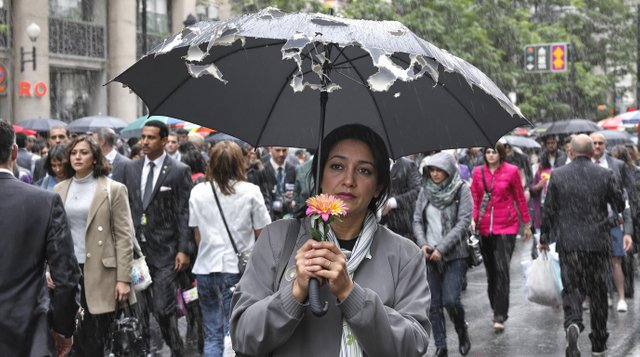
Imagine this: you’re sitting at the kitchen table, unpaid bills stacked like bricks around you. The knock at the door isn’t a neighbor or a friend—it’s the bailiffs. They’re polite, but their words carry the weight of finality. Two weeks to pay, or your belongings are theirs.
The Unseen Gaps in the System
What do you do? Do you sell what little you have left, pull your kids out of school, move into a cramped, cold flat? Or do you look for another way—one that no one talks about, but that might save you and your family?
This story isn’t just mine. It’s the story of countless women who find themselves trapped by a system that promises stability but delivers anything but. And what drives someone to make a choice society judges so harshly? It’s time to look beyond the surface and understand why survival often demands unconventional paths.
The Myth of the Safety Net
I didn’t wake up one day deciding to break the rules. I tried everything first: working more hours, cutting back on essentials, selling what I could. But no matter how much I stretched, the ends never met.
We’re told to work hard, to save for rainy days, and to plan for emergencies. But what happens when it’s been raining for months? When wages stagnate, the cost of living soars, and every safety net has holes?
I sat up at night with calculators and credit cards, running the numbers over and over. The totals never changed. The debts were too big. The options were too few.
As a single mother, the jobs available to me barely covered childcare, let alone the mounting bills. I wasn’t lazy. I wasn’t irresponsible. But the system wasn’t built for people like me. And I’m not alone.
How many women sit up at night, staring at stacks of bills, wondering how to solve the unsolvable? How many are told to “just work harder” or “manage better” while the system quietly lets them fall?
The Unfair Burden on Women
At the PTA meeting, I smiled and nodded, pretending everything was fine. On the inside, I was calculating how much longer we could keep the lights on. Women are expected to juggle it all—work, kids, and the perfect smile—but no one asks who catches us when we fall.
The societal expectations are crushing. Be a good mother. Be a good employee. Keep your home spotless, your kids happy, your budget balanced. Never let anyone see you struggle.
Society loves the image of the struggling but noble mother. But step outside those lines—do something desperate—and suddenly, you’re not a mother anymore. You’re a cautionary tale.
I carried that shame in silence. Every lie I told, every secret I kept, felt like another weight on my shoulders. But what choice did I have? When the world demands perfection and offers no support, survival often looks like rebellion.
The Reality of Unconventional Choices

The ad was simple: “Attractive women needed. Earn up to £300 a night.” I didn’t want to call. But as I stared at the bills and thought of my kids, the choice became clear. It wasn’t about desire. It was about survival.
I walked into that hotel room trembling, wearing a dress that didn’t feel like me. He was polite, even kind, but nothing about it felt real. When it was over, I expected shame. What I felt instead was relief. For the first time in months, I could breathe.
This wasn’t about luxury or indulgence. It was about putting food on the table and keeping a roof over our heads. The other women weren’t victims either. They were students, single mothers, women who refused to let the system decide their fate.
These choices aren’t made lightly. They’re calculated, pragmatic responses to impossible situations, each one leaving a mark. The mental strain of weighing such decisions, the constant fear of judgment, and the quiet moments of self-doubt take their toll. Every choice feels like a compromise, a question of how much you can give without losing yourself completely. And while society loves to judge, it rarely stops to ask: what would you do?
The Ripple Effects of a Broken System
I told the kids I had a night job. They’d ask what kind, and I’d smile and say, “Just work, sweetheart.” They believed me completely, and that trust broke my heart every time. I wasn’t lying to them—I was protecting them.
Every decision I made came with consequences. The secrecy. The exhaustion. The constant fear of being found out. Balancing two lives was like walking a tightrope, and there were moments I thought I’d fall.
But this isn’t just my story. When the system fails one person, it doesn’t just affect them. It ripples out—to families, communities, and entire generations. And the shame we attach to survival only makes those ripples harder to overcome.
The World Beyond: Stories of Resilience
In places like Colombia, escorting isn’t just survival—it’s opportunity. Women use the money to send their kids to school, to build homes, to carve out independence in a world that offers them little else.
These women aren’t victims. They’re not criminals. They’re mothers, daughters, friends. They’re women who saw an opportunity to take control of their futures. Their resilience is a reminder that survival doesn’t look the same for everyone, but the drive to protect and provide is universal.
I saw myself in their stories. The details were different, but the core was the same: when no one else is there to catch you, you learn to build your own net.
The Internal Struggle of Survival
Every decision I made came with questions. Was I doing the right thing? Could I look my kids in the eye and still feel like a good mother? The answers didn’t come easily. But I reminded myself: survival isn’t always about feeling proud. Sometimes, it’s just about getting through.
I’d stand in front of the mirror at night, scrubbing off makeup and tears, and think: Is this enough? But then I’d hear my kids laughing, safe and warm, and know it had to be.
The guilt and the relief coexisted. I didn’t feel like a hero, but I felt like a mother who was doing what she had to do. And in the end, isn’t that what matters most?
Changing the Conversation
It’s easy to judge someone from the outside. But unless you’ve lived their struggle, you don’t understand their choices. Instead of asking, “Why would someone do this?” we should be asking, “Why do they have to?”
We need to shift the narrative around survival and unconventional choices. Normalize conversations about the systemic failures that lead to these decisions. Advocate for better policies: wage equality, affordable childcare, and financial safety nets.
The women who navigate these impossible choices aren’t weak. They’re warriors. And it’s time we see them for what they are: survivors in a world that too often lets them down.
So, What Would You Do?
So, my friend, let me ask you: What would you do if the ground beneath you crumbled? If the world you trusted failed you? I’ve lived my answer. Now it’s your turn to think about yours.